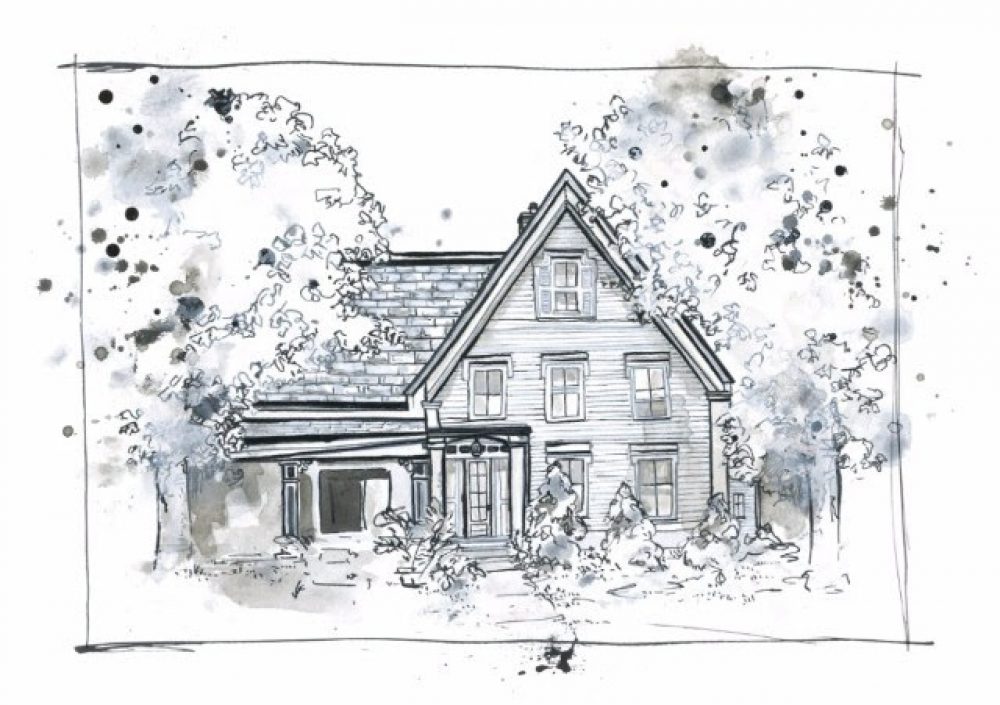Dear Milk Streeter,
They used to call it “cabin fever.” It comes in late winter, the skin pale, the eyes a bit unfocused as if looking at something in the far distance, the fingers cracked from the cold, and the hair matted down from a season of orange wool hunting caps. It’s that time of year.
The wood smoke from the cookstove, which thrilled on the first cold night in late September, is now unwelcome exhaust. The wood pile in the barn is getting low, the kindling pile is exhausted, and the empty bourbon bottles are lined up in the root cellar on the edge of the stone foundation. The backstrap from the 8-pointer you shot in November is long gone; now it’s suppers of ground and stew meats plus the breakfast sausage, which tastes of too much salt and sage. The rubber matting in the pickup is bleached from road salt. The back porch has half-empty bottles of orange windshield wiper fluid, a cracked snow shovel and a bag of rock salt. Temperatures in the 20s feel balmy, much less those few days above freezing. And the country store has run out of cigarettes and beer; they are using paper napkins for coffee filters, and they only carry one-size cup—extra-large—without tops.
And then, all of a sudden, it’s sugaring season. Trees get tapped, lines get checked and mended, the arch is cleaned, filters are replaced on the R.O. (reverse osmosis machine), and the vacuum pump is serviced and hooked up for the coming season.
Daytime temperatures start to hit the low 40s with a solid freeze at night, and the sap starts to flow. The pumps dump the fresh sap into holding tanks with a whoosh, the sap gets concentrated through the R.O. to a higher sugar level, and the boiling begins.
Steam and heat, the taste of hot syrup on snow, grilled venison with onions and peppers for lunch, Nascar on the big yellow portable radio, and neighbors stopping by to offer advice, hoping for a free bottle or two.
And it’s a time for storytelling. Advice about bar fights; “hit first and hit hard.” The story of the crew that complained that part of the sugarbush wasn’t producing the way it should. The boss came by, took a look, and said, “Well, that’s because you’re tapping hickory, not sugar maple!” Or Tom hunting during a thick snowstorm, his back up against a large oak with his rifle leaning against the tree beside him. And then a nice 6-pointer stuck his head around the tree and looked him in the eye. He took off into the snow and Tom never got a shot.
And we talk about old days on the farm: double-holed corn shellers, long-handle hide dressers, milk aerators, honey extractors, wagon jacks and reversible ploughs. Or how Floyd Bentley used to talk to horses, slipping on their harnesses and traces and gently backing them into a hitching. Or, if a team spooked, he would say, “Don’t be foolish,” as if they understood and knew better.
Old town bachelors drive pickups with 250-gallon tanks on the back. They are out collecting sap from holding tanks propped up by the side of the road. Wood smoke and steam curls up from sugar shacks in the hollows and valleys of our town and we emerge from houses like half-starved bear, looking for new conversation.
That’s the coming of spring in Vermont. Winter’s not done with us yet but the time is coming to turn over the garden for beets and early lettuce, to clean out the garden shed, to order a load of composted manure, and to head out for some early fly-fishing.
Pretty soon we’ll fall asleep to the rush of Baldwin Brook running full, the buds will start popping pink, and the red-tailed hawks will be back, circling for rabbit and chicken.
Welcome to springtime in Vermont.
Cordially,

Christopher Kimball




